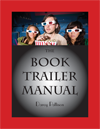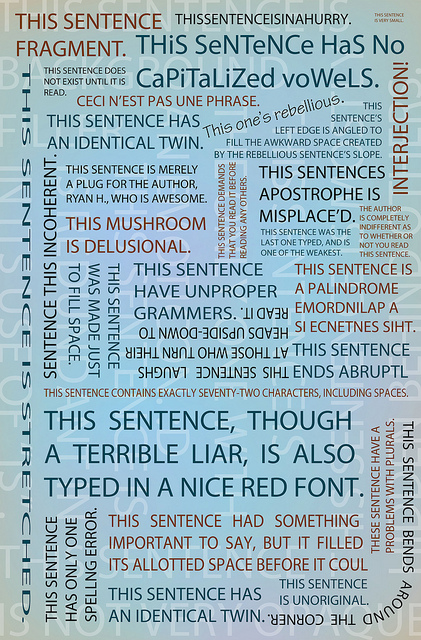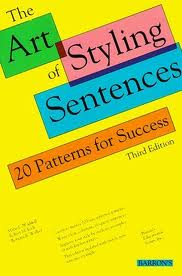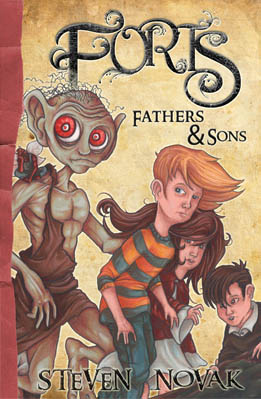After we left school, few of us remembered what an infinitive was. Editors will remind you.
Let's review: The infinitive of a verb is its basic form with or without the particle to: do/to do and be/to be.
1) An infinitive verb almost always begins with to followed by the simple form of the verb.
Examples:
Dick likes to run often.
Dick wants to fly planes.
Dick used to walk to work.
2) An infinitive is not doing the work of the verb of the sentence. Don't add s, es, ed, or ing to the end.
Dick (subject) likes (verb) to run (infinitive) often.
3) Infinitives can be used as nouns, adjectives, or adverbs.
Noun: To jam with the band after work was Dick's incentive to get through the day.Adjective: The only way Dick would survive his boring job was to dream about his gig at the bar.Adverb: Dick, an aspiring songwriter, suffered through his job at the tax office to pay for necessitities until his big break arrived.
4) A split infinitive is inserting a word between to and the verb.
Incorrect: Sally wanted to thoroughly kiss him.
Correct: Sally wanted to kiss him thoroughly.
For effect: Sally wanted to kiss him, thoroughly.
This rule is broken frequently. If you choose to split infinitives, do it intentionally and for emphasis, not because you don't understand the rule.
Revision Tips:
You can search and kill for the word to.
Make sure you type in the search window: (space)to(space).
Otherwise, you will bring up every combination of the letters t and o. The sheer volume may crash your computer.
You could also search and kill for word pairs: wanted to, tried to, ought to, used to, liked to, etc.
Make a list of your favorite bugaboos and prune them into shape.
For all of the revision tips on verbs and other revision layers, pick up a copy of:
1) A single, active verb is more effective than passive verbs or passive verbs paired with adjectives.
Search and kill as many passive verbs as you can. Look for: am, is, are, was, were, being, be, been and any verb ending in -ing. A few passive verbs in a manuscript is fine; a few in a paragraph aren't.
2) Starting a phrase with a passive -ing verb implies the two things happened simultaneously.
Dick danced, twirling plates on his head, and singing a song.
Dick twirled plates on his head as he danced and sang.
Dick could potentially do those things at the same time if he was truly talented.
Picking up her briefcase and locking the door, Sally rushed off to work.
Sally can't pick up her brief case, lock the door, and rush off to work all at the same time. The sentence should read:
Sally picked up her briefcase, locked the door then rushed to work.
If the items cannot happen simultaneously, change it.
3) There is a difference between passive voice and past tense.
Past tense means the action already occurred.
Passive voice has to do with who did or did not do something. It almost always includes forms of the verb to be. In active voice, the subject does something. In the passive voice, something is done to the subject.
It is generally considered better to use active rather than passive verbs.
4) In the revision phase, as you read the sentences, identify the subject and verb.
Does the subject of the verb perform the action of the main verb or does he sit there while something or someone else performs the action? If the subject performs the verb, it is active. If it doesn’t, it’s passive.
Passive: The victim was drowned around midnight.
Active: The murderer drowned the victim around midnight.
Passive: Jane was scratched by Puff.
Active: Puff scratched Jane.
In instances when the writer does not know the doerof the verb, the doer is not important, or there are many doers, it is acceptable to use passive verbs.
If you intentionally obscure whodunit, you might say, “Dick was murdered.” If you say, “It was just lying there,” you have indicated that it doesn’t matter who left it lying there or why.
5) A character might always speak passively as a quirk.
6) Linking verbs indicate a state of being, not action.
Do a search for:is, was, are, seems, becomes. These are red flags.
7) Passive verbs and modifiers shouldn’t be mixed.
If you begin a sentence with a modifying phrase, it becomes a dangling modifier if you follow it with a passive verb.
Sighing softly, the book was placed on the table.
The sentence forgot to mention who sighed and placed the book on the table. Supplying the missing who turns it into an active sentence.
Sighting softly, Jane placed the book on the table.
Jane sighed softly and placed the book on the table.
Revising for passive verbs is a tedious chore. However, the more you practice using verbs correctly, the more natural it will become.
For more information on revision and proper verb usage, check out Story Building Blocks III: The Revision Layers. I don't revise a book without it.
Random Acts of Publicity DISCOUNT:

$10 OFF The Book Trailer Manual.
Use discount code: RAP2011
http://booktrailermanual.com/manual
 Creating the voice you want for your story or novel begins with Word Choices. It continues with control of your sentences. I emphasize control because many writers–well, they just write. Without consideration of sentence structures.
Creating the voice you want for your story or novel begins with Word Choices. It continues with control of your sentences. I emphasize control because many writers–well, they just write. Without consideration of sentence structures.
Sentences, as the basic building block of the written word, need careful attention. You can write long, short, simple, complex, parallel, convoluted or fragmented. Yes. Fragments work.
When do you use which sentence structure. Here’s where it helps to read your work aloud, listening for a smooth flow. Does the writing disappear and let the story come forward, or does the writing force you to stop and read again for clarity? Are there frequent stutters as the rhythm of the piece breaks down?
Where do you want the emphasis?
In  Style: Lessons in Clarity and Grace, Joseph Williams takes a scholarly look at sentences and how to manage them. Of course, there are lessons on omitting the passive voice, creating strong subjects of sentences and making sure there is clarity throughout. He also speaks of putting the emphasis where you want it to be. For example, I often ask people to look at a paragraph and identify the most important word/phrase in that paragraph. Williams says the ends of sentences are positions of emphasis or stress. So, I ask the writers to reword the sentence and put the most important word last.
Style: Lessons in Clarity and Grace, Joseph Williams takes a scholarly look at sentences and how to manage them. Of course, there are lessons on omitting the passive voice, creating strong subjects of sentences and making sure there is clarity throughout. He also speaks of putting the emphasis where you want it to be. For example, I often ask people to look at a paragraph and identify the most important word/phrase in that paragraph. Williams says the ends of sentences are positions of emphasis or stress. So, I ask the writers to reword the sentence and put the most important word last.
Consider the differences between these two sentences.
- The Revolution has begun.
- It was the beginning of the Revolution.
#1 is shorter and emphasizes that something has started.
#2 is longer and emphasizes there is a Revolution. It uses the “It was. . .” construction to push the important information to the end of the sentence. A careful writer would weigh the disadvantage of the weaker to-be verb with the advantage of putting the word “Revolution” in the position of stress.
The choice depends on where you want the readers to focus. It’s a choice that affects style, clarity and, of course, voice.
Here are other posts on using great sentences to create voice.

Importance of Sentence Variety
My niece was here this weekend and we talked about her college writing experience. She said they try to change her habitual writing of high school into something more sophisticated. For example, they eschew the five-paragraph essay, rightly so. Instead, they look for more sophisticated structures.
But when I teach writing, I focus on not just on structures, but on the craft of writing itself. It begins with sentences, especially with sentence variety: long, short, simple, complex, convoluted, straight forward, building with a series, stopping abruptly, or continuing forward to complete a thought.
 One of the most helpful things I ever did was work through The Art of Styling Sentences: 20 Patterns for Success. It forces you to look at sentences in all their simplicity, complexity and glory.
One of the most helpful things I ever did was work through The Art of Styling Sentences: 20 Patterns for Success. It forces you to look at sentences in all their simplicity, complexity and glory.
For example, do you know how–it’s really easy–to interrupt a sentence with another sentence and correctly punctuate it? The patterns encourage writers to gain control of their language and punctuation, to throw fear of commas and semi-colons and colons out the window, and start writing what they want to write.
Summer Challenge
Summer is a challenging time for some writers because kids are home. So here’s a perfect challenge for you, a challenge that will improve your writing with very little effort!
Are you holding back because you don’t know how to punctuate something? Try this summer challenge with a partner: each week choose a new sentence pattern and use it somewhere at least five times. Have your partner check up and make sure it was used correctly. The first few patterns are simple, but the book builds in complexity. You’ll come out of the summer with a stronger control of the language you use in any context, but it will particularly help your fiction. Really. (Isn’t THAT a great sentence fragment, used correctly? You need to control even those rogues.)
After you’ve worked through the patterns in this book, there are two a final challenges.
- Write at least a 100 word sentence, correctly punctuated.
- Correctly use a sentence fragment. Really.
 NonFiction BookBlast
Sunday, June 26, 2011. 8-10 am.
ALA Conference in NOLA.
NonFiction BookBlast
Sunday, June 26, 2011. 8-10 am.
ALA Conference in NOLA.


By:
Steve Novak,
on 2/26/2010
Blog:
Steve Draws Stuff
(
Login to Add to MyJacketFlap)
JacketFlap tags:
contest,
stuff,
simple,
fathers,
march,
sons,
sentence,
forts,
kiss,
freebie,
easy,
weirdo,
canonbridge,
Add a tag
I want to give away a free copy of the book.
Why? Well, because I'm a heck of a guy, that's why.
However, giving away something requires a contest, and contests are more often than not a pain in the poop cheeks of those putting them together.
If I'm going to do a contest I want to keep it simple - because I'm lazy.
To enter all you have to do is finish the following sentence:
"I really, really want a free copy of "Forts" because..."
That's it.
Just tell me why you deserve to get the book for free and email it to: [email protected]
In the end, I'm the judge. I'll pick my favorite and when the book is released you'll not only get it for free, but I'll sign it and maybe even draw a little something on the inside cover. I'll do whatever you want. If you feel like you really need me to put on some lipstick, pucker up and give it a kiss I'll do that too.
Keep in mind however that asking me to do such a thing would be horrifying, and confusing request - no doubt instantly transforming you into a grade-A weirdo in my eyes.
Who knows, maybe you're cool with that? Maybe that's exactly what you're going for? I'm not here to judge really, just give away free stuff.
Make your response funny, give me a sob story, threaten my life and the lives of those I love - I don't care - do what you have to do in order to convince me that you deserve a freebie over the other dudes sending emails my way.
You could even bribe me, though that would seem to defeat the purpose.
THE DEADLINE FOR SUBMISSIONS IS MARCH 15, 2010. I'll announce the winner a few days later.
See, nice and easy. It'll take you all of fifteen seconds. Get to it.
Steve









 Style: Lessons in Clarity and Grace
Style: Lessons in Clarity and Grace


